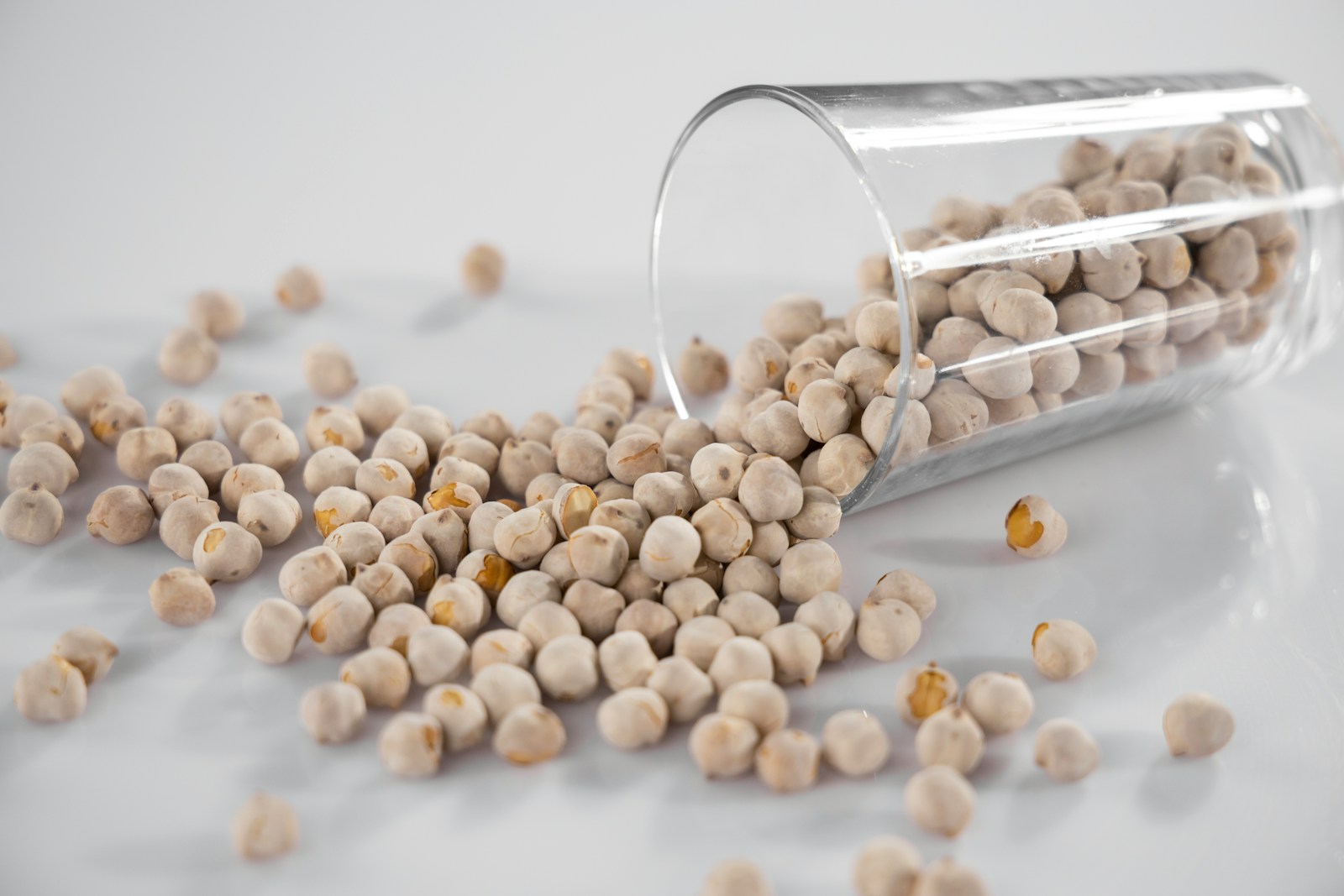The importance of sciatica nerve pain and its associated discomfort often leads individuals to explore multiple avenues of relief, one such being the incorporation of specific vitamins into their daily regimen. Some vitamins, such as B12, D, E, and Magnesium, appear to offer significant benefits due to their roles in nerve cell functioning, anti-inflammatory properties, and muscle relaxation. However, it’s essential to take into account the balance of these vitamins and their sources. Could dietary changes and supplementation be the key to managing this chronic condition? A closer examination of each vitamin’s role and potential benefits may provide the answer.
Understanding Sciatica Nerve Pain
To comprehend the role of vitamins in alleviating sciatica nerve pain, it is imperative to first understand the nature and characteristics of this specific type of discomfort. Sciatica is a condition that is characterized by pain radiating along the pathway of the sciatic nerve, which branches from the lower back, through the hips and buttocks, and down each leg. It typically affects only one side of the body and can range in severity from mild to severe.
Sciatica triggers can include lumbar spinal stenosis, degenerative disc disease, and pregnancy. These conditions lead to inflammation, compression or irritation of the sciatic nerve, all of which can cause sciatica pain. Symptoms often include lower back pain, hip pain, burning or tingling down the leg, and weakness or numbness in the affected leg or foot.
Pain management techniques for sciatica often involve a combination of physical therapy, medications, and in some cases, surgery. The goal is to alleviate pain and prevent further nerve damage. However, these conventional treatments may not always be effective or desirable due to potential side effects. Hence, exploring alternative treatments, such as the use of vitamins, is becoming increasingly common.
Role of Vitamins in Pain Management
Harnessing the power of certain vitamins, it is possible to manage and even reduce the severity of sciatica nerve pain. Vitamins play a vital role in the biochemical reactions in our nervous system that influence pain perception. They assist in the production of chemicals called neurotransmitters, which transmit signals between nerve cells, helping to modulate the sensation of pain.
Vitamin absorption is an essential factor in this process. When consumed, these nutrients need to be effectively absorbed by the body to perform their functions. Inadequate absorption may lead to deficiency, impairing the body’s pain management mechanisms. For example, Vitamin D, known for its role in bone health, also influences pain perception. A deficiency in Vitamin D can exacerbate sciatica symptoms by increasing the sensitivity of nerve cells to pain.
Moreover, antioxidants like Vitamin C and E can minimize nerve damage by combating oxidative stress, a significant contributor to inflammation and pain. Their deficiency can escalate pain perception and hinder the healing process.
Hence, maintaining adequate vitamin levels can be a key strategy in managing sciatica nerve pain, highlighting the importance of a balanced diet or appropriate supplementation. However, individual needs may vary, and professional advice should be sought.
The Importance of Vitamin B12
Vitamin B12 plays a significant role in nerve function and its deficiency can be linked with sciatica nerve pain. It is important to understand the connection between B12 deficiency and sciatica to implement effective treatment strategies. Further, deciphering the best dosage of B12 is essential to alleviate pain and support the nerve health.
B12 Deficiency and Sciatica
A significant number of individuals suffering from sciatica nerve pain are often found to have a deficiency in Vitamin B12, highlighting its important role in nerve health and function. This deficiency can be attributed to B12 absorption issues, which can lead to various neuropathic disorders, including sciatica. Vitamin B12, also known as Cobalamin, plays a vital role in the formation of myelin, a protective sheath that covers nerves, including the sciatic nerve. Lack of B12 can cause myelin to degrade, exposing the nerve to damage and triggering pain signals. Additionally, B12 supports the normal functioning of nerve cells and aids in their communication. Keeping adequate B12 levels is essential to manage sciatica and promote overall nerve health.
Optimal B12 Dosage Recommendations
To maintain prime nerve health and potentially alleviate sciatica symptoms, understanding the suggested dosage of Vitamin B12 is vital. The recommended daily dosage for healthy adults is 2.4 micrograms, but the dosage may be increased under medical supervision for individuals with sciatica or those at risk of nerve damage.
It’s important to be aware of B12 sources and absorption challenges. B12 is primarily found in animal products, therefore, vegetarians and vegans may require supplements. Absorption of B12 is a complex process involving intrinsic factor, a protein produced in the stomach. Conditions affecting stomach or intestinal health, such as atrophic gastritis or pernicious anemia, can impede B12 absorption, necessitating higher dosage or alternative administration methods. Always consult a healthcare provider for personalized advice.
Vitamin D for Nerve Health
Vitamin D, often referred to as the ‘sunshine vitamin’, plays a pivotal role in nerve health. A deficiency in this essential nutrient has been linked to chronic conditions like sciatica, a debilitating nerve pain. Hence, understanding the mechanisms through which Vitamin D operates can be beneficial in managing and possibly alleviating sciatica pain.
Vitamin Ds Role
Essential for maintaining overall health, Vitamin D also plays a significant role in nerve function, potentially providing relief from sciatica nerve pain. This vitamin aids in the absorption of calcium, an important mineral needed for proper nerve transmission and function. Sunlight exposure benefits our bodies by naturally providing Vitamin D. It is synthesized in the skin upon exposure to ultraviolet B rays.
Apart from sunlight, dietary sources for Vitamin D include fatty fish, cheese, and egg yolks. Fortified foods like milk and cereals are also excellent sources. Certain mushrooms exposed to sunlight or ultraviolet light can also be a source of Vitamin D. Incorporating these foods into one’s diet could potentially aid in maintaining nerve health and reducing sciatica pain.
Deficiency and Sciatica Pain
While a necessary intake of Vitamin D may support nerve health and alleviate symptoms of sciatica, a deficiency in this essential nutrient could potentially exacerbate the condition. Vitamin D deficiency has been linked to increased nerve pain, and it’s hypothesized that this is due to the vitamin’s role in maintaining nerve function. Additionally, Zinc benefits include its function as a powerful antioxidant and anti-inflammatory agent, potentially reducing sciatica symptoms. Conversely, Iron deficiency may lead to anemia, causing fatigue and weakness that can intensify the physical stress experienced by sciatica sufferers. Hence, maintaining adequate levels of Vitamin D, Zinc, and Iron is essential for optimal nerve health and managing sciatica pain.
Magnesium: The Natural Muscle Relaxer
Often dominant, magnesium plays an essential role in nerve transmission and muscle contraction, making it a natural choice for alleviating sciatica nerve pain. This essential mineral is known as a natural muscle relaxer, helping to reduce muscle spasms and nerve excitability, both common symptoms in sciatica sufferers.
Magnesium sources are mainly found in plant-based foods such as leafy green vegetables, nuts, whole grains, and legumes. However, the absorption of magnesium can present challenges. Factors such as age, gut health, and dietary habits can affect how much of the mineral is absorbed. For instance, high intake of alcohol, salt, coffee, phosphoric acid in sodas, and certain medications can all decrease magnesium absorption.
Despite these absorption challenges, it is possible to address a magnesium deficiency and improve sciatica symptoms through dietary changes and supplementation. However, care should be taken with magnesium supplementation as excessive intake can cause digestive issues. Always consult with a healthcare provider before starting any new supplement regimen.
Anti-inflammatory Properties of Vitamin E
Vitamin E, a fat-soluble nutrient found in many foods, has potent anti-inflammatory properties that can be beneficial for those suffering from sciatica nerve pain. Its benefits extend from reducing inflammation to improving nerve health, which is essential for managing sciatica symptoms. However, like any supplement, it is important to understand the appropriate dosage and potential precautions when incorporating Vitamin E into a treatment regimen.
Vitamin E Sources
Renowned for its potent anti-inflammatory properties, Vitamin E can be readily sourced from a variety of foods such as nuts, seeds, and leafy green vegetables. This crucial nutrient exhibits E Antioxidant Benefits, which counteracts harmful free radicals that can cause inflammation and pain.
Topical Application of Vitamin E can also prove beneficial due to its ability to penetrate the skin and reach the inflamed area, providing relief. Wheat germ oil, sunflower seeds, almonds, and hazelnuts are rich sources of Vitamin E. Moreover, spinach, broccoli, and kiwi fruit are hearty inclusions to any diet for their Vitamin E content. Regular consumption of these foods can guarantee a steady intake of this essential vitamin, known for its potent anti-inflammatory and antioxidant properties.
Benefits for Sciatica
In examining the therapeutic implications of Vitamin E, its anti-inflammatory potential offers significant benefits for individuals suffering from sciatica nerve pain. Its anti-inflammatory properties can reduce inflammation of the sciatic nerve, thereby offering relief from pain and discomfort.
- Vitamin E may improve nerve health and function, which can lead to decreased pain and increased mobility.
- The use of Vitamin E in conjunction with ‘Sciatica Exercise Benefits’ can yield more pronounced results, as it supports nerve regeneration and muscle recovery after workouts.
- Yoga for Sciatica, when paired with Vitamin E intake, can potentially enhance flexibility and nerve function, reducing the frequency and intensity of sciatica flare-ups.
- Long term use of Vitamin E may result in cumulative benefits, potentially reducing the chronic nature of sciatica in some individuals.
Dosage and Precautions
When considering the use of Vitamin E for sciatica nerve pain, it is important to understand the recommended dosage and potential precautions associated with its anti-inflammatory properties. The daily dosage for adults is typically 15mg, but should be adjusted under a healthcare provider’s guidance. Overdosing can lead to nausea, vision changes, and fatigue. The anti-inflammatory properties of Vitamin E can interact with various supplements and medications, particularly anticoagulants, leading to increased bleeding risks. It’s essential to discuss these potential supplement interactions with a healthcare provider. Allergic reactions to Vitamin E are rare but can include skin rashes and swelling. Therefore, it’s vital to monitor for these signs when starting a new regimen.
Omega-3 Fatty Acids: Beyond Heart Health
How can Omega-3 fatty acids contribute to alleviating sciatica nerve pain, beyond their well-known benefits for heart health? The answer lies in their potent anti-inflammatory properties, which are beneficial for brain health and can also help to mitigate the inflammation associated with sciatica nerve pain.
Omega-3 fatty acids are obtained from various sources including fish oil, walnuts, flax seeds, and chia seeds, among others. They are essential fats that the body cannot produce on its own, hence the need for dietary intake.
These nutrients offer several benefits:
- Reduced Inflammation: Omega-3 fatty acids have been found to decrease the production of molecules and substances linked to inflammation, such as inflammatory eicosanoids and cytokines.
- Pain Alleviation: These fatty acids may reduce the intensity of pain in individuals suffering from sciatic nerve pain, courtesy of their anti-inflammatory effects.
- Neuroprotective Properties: Omega-3 fatty acids have shown potential in protecting nerves from damage and promoting nerve regeneration.
- Brain Health: These nutrients are known to support brain health, including memory and cognition.
Vitamin C for Immune Support
Shifting our focus to another key nutrient, let’s explore the role of Vitamin C, renowned for its immune-boosting effects. Vitamin C, also known as ascorbic acid, is a water-soluble vitamin that plays an important role in maintaining the health of the body’s connective tissue as well as acting as an antioxidant.
It is instrumental in the body’s healing process, which is particularly beneficial for those suffering from sciatica nerve pain. Moreover, Vitamin C strengthens the immune system, thereby enhancing the body’s capacity to fight off infections that could exacerbate the condition.
Citrus fruits benefits are largely attributed to their high Vitamin C content. Regular consumption of citrus fruits like oranges, lemons, and grapefruits can greatly enhance Vitamin C absorption, optimizing its immune-boosting effects. The human body cannot produce or store Vitamin C, so it’s necessary to consume it regularly in sufficient amounts.
However, while Vitamin C is beneficial, it’s important to maintain a balanced diet that includes other essential nutrients. Excessive intake can lead to side effects like diarrhoea and nausea. Consulting a healthcare professional for the appropriate dosage is always recommended.
The Healing Power of Vitamin A
Exploring the domain of essential nutrients, we find Vitamin A, a powerful agent known for its healing properties and significant role in alleviating sciatica nerve pain. This pivotal vitamin is present in two primary forms – retinol and carotenoids.
Among the retinol benefits is its ability to enhance the function of white blood cells, which are vital for maintaining a robust immune system. This, in turn, accelerates healing and recovery, especially helpful in managing conditions like sciatica.
Carotenoids, on the other hand, are a class of Vitamin A that come from plant sources. Carotenoid sources include fruits and vegetables like carrots, apricots, and spinach, that are rich in antioxidants, which help reduce inflammation and pain associated with sciatica.
To encapsulate:
- Vitamin A plays an essential role in pain management and recovery from sciatica.
- Retinol boosts the immune system, expediting healing processes.
- Carotenoids, a form of Vitamin A, help reduce inflammation.
- Wide-ranging sources of Vitamin A include both animal-derived (retinol) and plant-derived (carotenoids) foods.
In essence, Vitamin A’s healing properties could be a valuable asset in a thorough approach to managing sciatica nerve pain.
Incorporating Vitamins Into Your Diet
To reap the benefits of vitamins, particularly Vitamin A, for managing sciatica nerve pain, it is essential to strategically infuse them into your daily dietary regimen. Incorporating vitamins into your diet involves careful planning and understanding of your nutritional needs in relation to sciatica management. The key here is making the right dietary changes that guarantee sufficient intake of the necessary vitamins.
Vitamin A, for instance, can be found in various foods, including carrots, sweet potatoes, and spinach. Regular consumption of these foods can greatly contribute to the required daily intake. Other vitamins that aid in managing sciatica include B vitamins, found in whole grains, and Vitamin D, abundantly present in fatty fish and fortified dairy products.
While incorporating these vitamins in your diet, it is also important to take into account supplement safety. Not all supplements are created equal, and some may contain ingredients that could potentially cause adverse effects. Always make sure that any vitamin supplement you choose is approved by a reputable health authority. The goal is to enhance your diet, not to replace food intake. Remember, supplements should complement your diet, not replace it; a balanced diet is the foundation of good health.
Professional Advice: When to Seek Help
Despite diligent efforts to manage sciatica nerve pain through dietary changes and supplements, there may be situations that necessitate consulting a healthcare professional for further advice and treatment options.
It is important to be aware of the Pain Threshold Factors and recognize when your sciatica nerve pain is beyond self-management. This may include:
- Intensity of Pain: If the sciatica nerve pain persists, even after incorporating dietary changes and supplements, it may be time to seek professional help.
- Duration of Pain: Sciatica nerve pain that lasts for more than a few weeks is a clear sign that your body is not healing as it should, and medical intervention is necessary.
- Impact on Daily Life: When pain interferes with your ability to perform daily tasks and activities, it’s time to contemplate seeking professional help.
- Non-responsive to Therapeutic Exercises: If the pain does not improve with therapeutic exercises, it is an indication that the condition might be more complex than initially thought.
Frequently Asked Questions
Can Prenatal Vitamins Help With Sciatica Nerve Pain During Pregnancy?
Prenatal vitamins primarily support proper fetal development, not directly aiding in pregnancy sciatica management. While essential for overall health, their effectiveness in alleviating sciatica nerve pain during pregnancy is not scientifically established.
Does Vitamin Intake Reduce the Need for Pain Medication in Sciatica Patients?
Studies suggest a possible Vitamin Deficiency Connection in sciatica patients. Therefore, making Sciatica Dietary Adjustments and incorporating specific vitamin intake could potentially reduce dependence on pain medication. However, further research is needed to confirm this relationship.
Are There Any Potential Side Effects From Using Vitamins for Sciatica Relief?
Potential side effects from using vitamins for sciatica relief can include vitamin overdose risks and allergic reactions. Overdosing on vitamins can lead to toxicity, while allergic reactions may cause rashes, swelling, or breathing difficulties.
How Long Does It Typically Take to See Improvements From Vitamin Supplementation?
The timeframe for noticing improvements from vitamin supplementation varies, influenced by factors such as supplementation frequency and individual vitamin absorption rates. Typically, several weeks to months are required for noticeable physiological changes to occur.
Can I Use Vitamins for Sciatica Nerve Pain Instead of Physical Therapy?
While vitamin supplementation can aid in relieving sciatica nerve pain, it’s not a direct replacement for physical therapy. The impact of vitamin dosage and alternative therapy comparison should be thoroughly evaluated with a healthcare provider.



